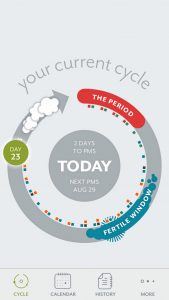A Woman’s Perspective: Exciting Innovations Ahead for Women’s Health

I have long been interested in groundbreaking data and initiatives that advance and expand women’s health care through research, optimization of medical practices and improvement of health literacy and behaviors. With this end in mind, I was recently invited to participate as an honoree at a cancer retreat for women and symposium focused on medical advances. It took place in Montpellier, France, the site of the oldest medical school in Western Europe. Interactive discussion topics included nutrition and new treatments for lymphedema, among others.
The cancer retreat, called Etincelle, was started eight years ago. It combines state-of-the-art professional health access with an interactive, holistic approach to life’s everyday activities — emotionally and physically activating a person’s potential for healing and reaching higher wellbeing levels.
The ongoing purpose of Etincelle (loosely translated to mean “spark”) is to allow women undergoing cancer treatment a safe place where they can gather for support. Classes in health, nutrition, cooking, esthetics, modified exercise and mindfulness are offered in a pretty and peaceful location.
I left the retreat and the symposium, which embraces innovative ideas in cancer therapies and ancillary services, feeling a bit in awe at the future-thinking medical knowledge collaboratively exchanged across countries, as well as the immense truth in the expression “learning from all and many.”
I have long applauded the concept of a cancer retreat as a “one-stop” inclusive supportive environment where women being treated for cancer go for everything from medical treatments, to programs, training, lectures, classes — even makeup, wig, skin and nails care.
Designed to complement mainstream and innovative medical treatments, retreats offer patients a way to take an active part in their own recovery within a fully supportive, shared and empowering networked environment with other women going through similar battles with illness. I am now taking an active role in helping to bring the Etincelle Montpellier model to the U.S.
I then headed to Berlin to meet with the team of Clue, leading-edge entrepreneurs of a female health application, started in 2013. (Full disclosure: I am a medical adviser to Clue, but I am not profiting from it and I am not an investor.) Clue’s founders, Ida Tin and Hans Raffauf, have not only created a period tracker with accuracy, ease of use and transparency, but they also have gained 2.5 million active users worldwide, and have raised $7 million in funding.
The Clue app, available both for IOS and Android phones, shows promise in helping women educate themselves about their menstrual cycles, thus gaining additional reproductive freedom.
“There is a basic need among women to understand their bodies and know more about it. When body awareness goes up, it creates a sense of being in charge and being in control,” Tin recently said.
Eventually Clue hopes to be able to build services that turn personal female health data into global insights, documenting a woman’s relationship to her body throughout her life, from the beginning of menstruation to menopause.
Without any doubt women’s health care is advancing in many directions and from many sources, and local knowledge sharing often does have global beginnings.
To read the original article for the Marin Independent Journal, click here.
The Marin Independent Journal welcomed Dr. Lizellen La Follette as their health columnist from 2015-2018. Her A Woman’s Perspective column appeared every fourth week in the Journal during these 3 years.
